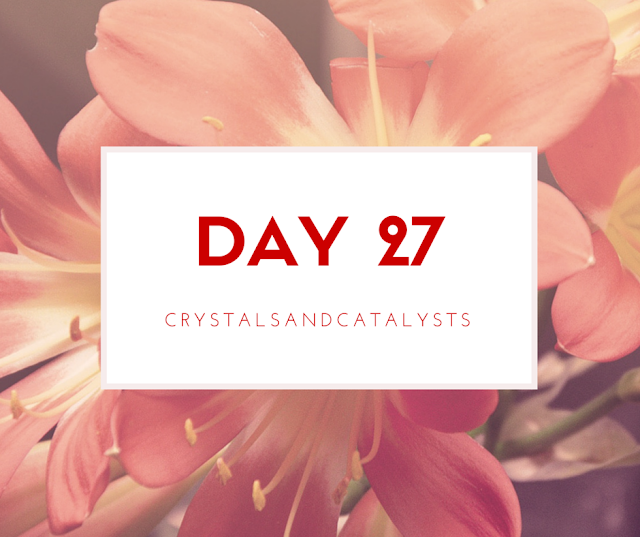For the second day, discussing a controversial topic in
science I will be reviewing the efficiency of Alternative medicine.
But to what extent can we trust alternative medicine?
First of all, what is alternative
medicine?
Alternative method contains the practice of: acupuncture,
chiropractic and homeopathy. All of these techniques had not been proven by scientific methods.
The reason why it’s so popular is due to the power of
anecdotal evidence. For example, you can hear from a friend that alternative treatment
helped improve their back pain. At first, this may seem as the treatment works
and you’ll want to try it. But you have to remember that the experience of a
single person doesn’t prove that a treatment works the same for everyone.
Sometimes the body gets better on its own or via a placebo effect, giving rise
to the “it worked for me” response and encouraging more people to follow in
their footsteps.
.................
Contrary to what the popular opinion is about alternative medicine,
there is a lot of new research proving that there are some methods used to
combat pain using alternative medicine that are efficient and it’s been scientifically
proven that they work.
One study, published in the Journal
of Acupuncture and Meridian Studies, looks at the effects of the so-called acupuncture
meridian system (AMS) which is a key concept of Traditional Chinese Medical
Science (TCMS). This is a natural network formed by the tissue space that
connects human viscera and skin. In this study, a new hypothesis presents that
the AMS is an auxiliary respiratory system. The AMS collects the CO2 that is produced by tissue supersession and
that cannot be excreted via blood circulation, and discharges the CO2through the body's pores, consequently
preventing a pressure increase in the internal environment. Therefore, local
blood circulation will not be blocked, and the body will remain healthy. As
well as neuroregulation and humoral regulation, AMS regulation is an important
method of physiological regulation.
Although
some of the experimental data provided has evidence supporting their new
hypothesis, further studies are needed to prove it. Besides, based on the
existing data, AMS is expected to have a bright future.
Through
another study, published in the Journal of Acupuncture and Meridian Studies,
acupuncture has been
used to relieve cancer symptoms. Small
amount (21%) of patients reported nausea, which was significantly reduced after
the first session, but not the last session. Reductions represented clinically
meaningful differences in 33–41% of patients after the first session and in
41–53% of patients after the last session for all symptoms, except nausea. A
small subset of patients (0–8%) reported worsening symptoms after acupuncture.
The majority were satisfied with the treatment.
The Honest Placebo...
This may not be alternative medicine, because it is still under scientific trials, but this piece of new research opens many doors to understanding how the human body treats itself. Scientists (Ted Kaptchuk and Kevin Fontaine) at the University of Alabama at Birmingham have
found an amazing discovery with placebo pills.
Here’s what they did:
I. Find people in pain (in this case people with
IBS-Irritable Bowel Syndrome)
II. Enrol them in the study
III. Admit to them, that they cannot do anything to help them
IV. Give half of the test group a placebo pill and the other half nothing.
V. Tell the participants exactly what they’re doing
II. Enrol them in the study
III. Admit to them, that they cannot do anything to help them
IV. Give half of the test group a placebo pill and the other half nothing.
V. Tell the participants exactly what they’re doing
The weirdest thing is: it works!!!! To everyone's surprise, the treated group (the ones
who received the fake pills) reported twice as much improvement as the
untreated control group (the ones who didn’t get any pills). We
all know that placebo pills are used in chemical trials to see if the tested
drug works, and that the participants in the study aren’t meant to know whether
they are taking a placebo or not. But in
this trial the patients all knew that they were taking fake pills. A surprising
discovery.
So how does it actually work?
"We
believe there's some element of classical conditioning going on," Fontaine
said. "Throughout your life, you take a pill and you see an effect. You
take an aspirin, for instance, and it takes away your headache. There's an
association there in your mind, and the idea is that the ritual of taking pills
may actually produce a beneficial effect."
"We
believe there's some element of classical conditioning going on," Fontaine
said. "Throughout your life, you take a pill and you see an effect. You
take an aspirin, for instance, and it takes away your headache. There's an
association there in your mind, and the idea is that the ritual of taking pills
may actually produce a beneficial effect."
Since
their discovery, the scientists are now planning on trialling their “open-label”
placebo technique on cancer survivors, to see if the results are the same with
them.
"We
want to see if we can make any difference in symptom severity," Hoenemeyer
said.


Comments
Post a Comment